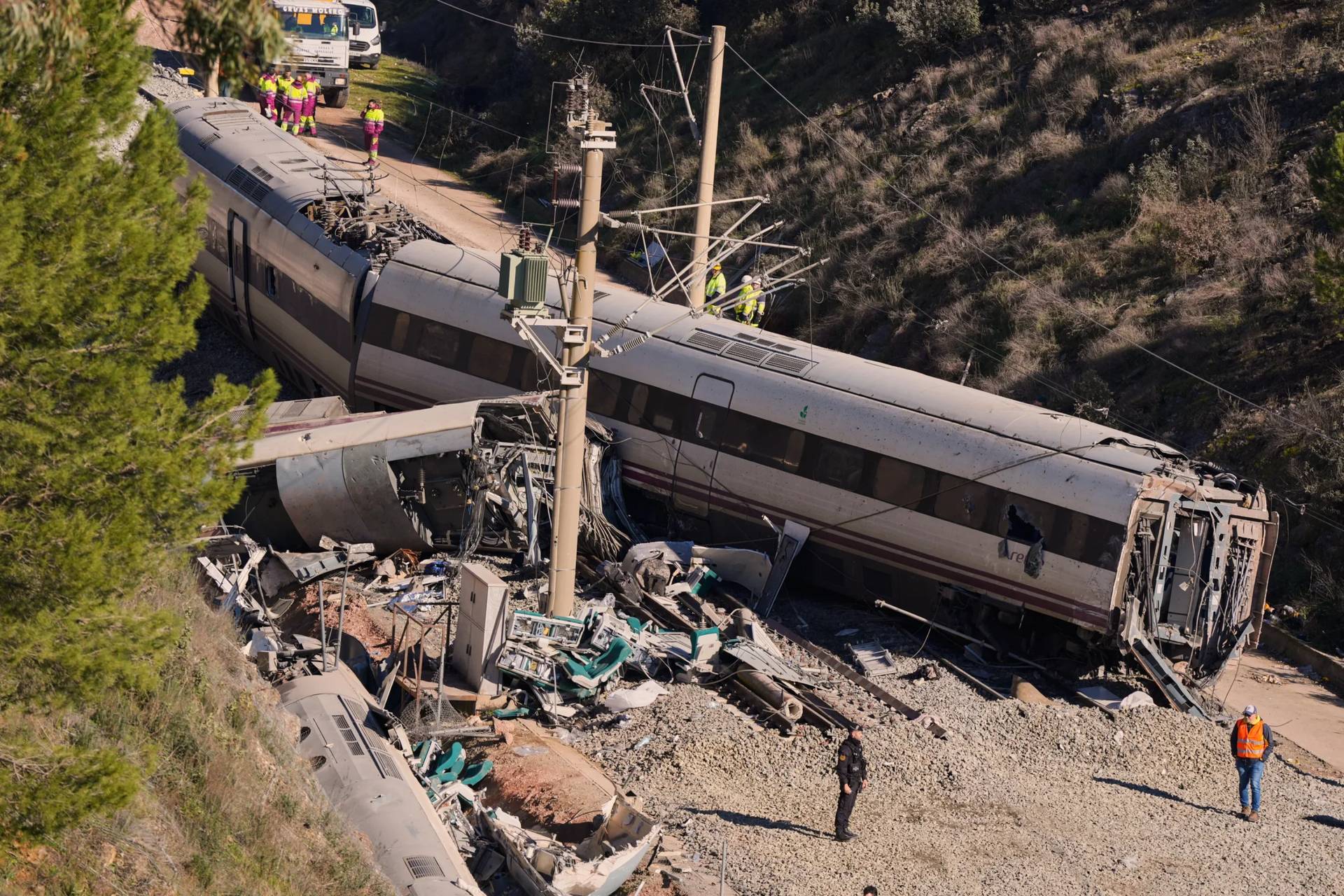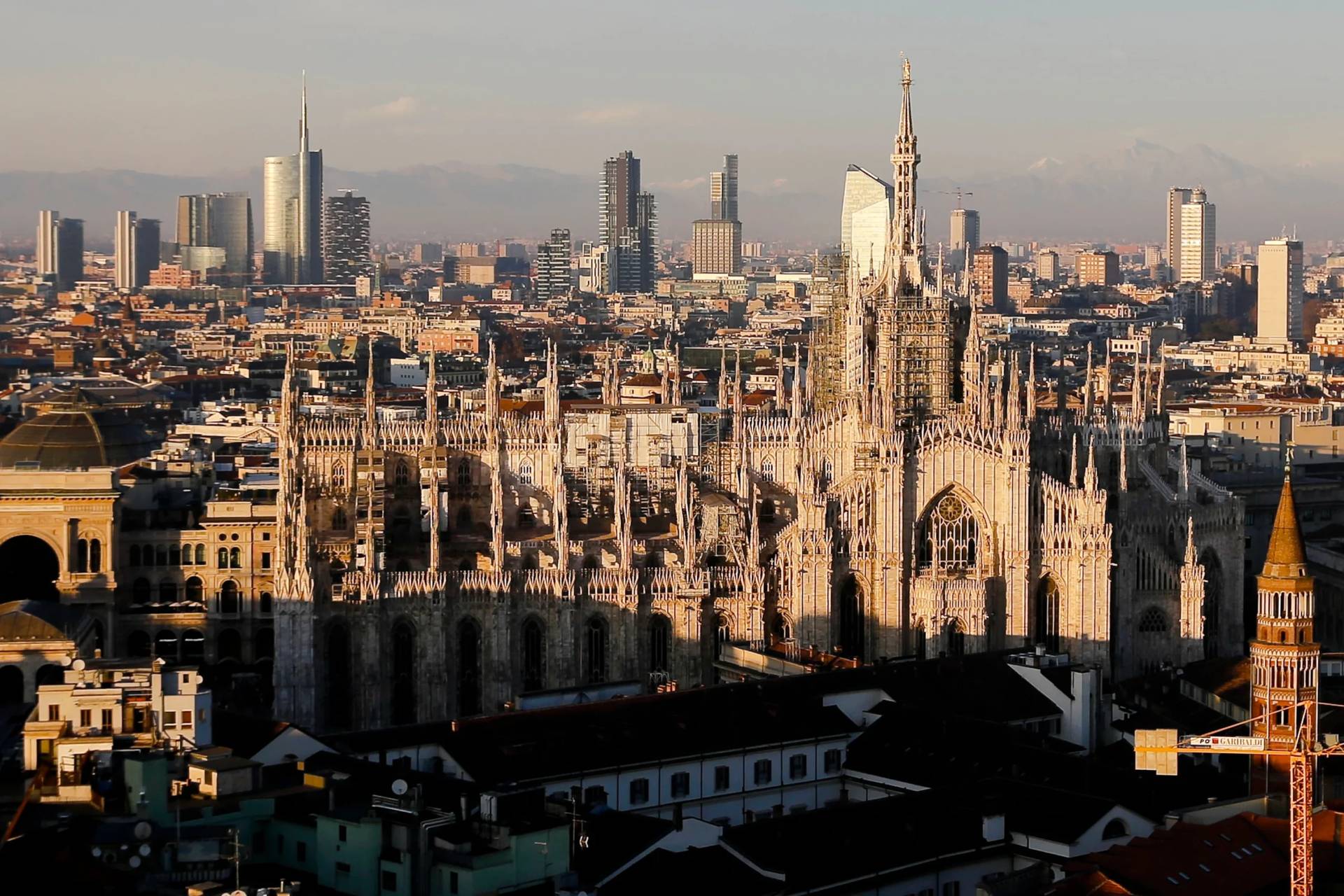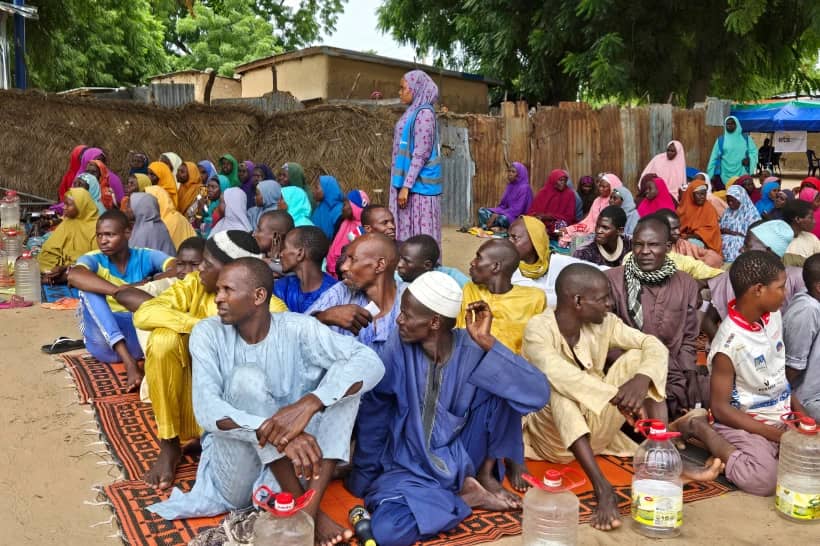ROME – As the war in Ukraine enters its seventh day, the country’s leading Catholic charity organization assisting both those who are fleeing and those who have stayed has made an appeal for concrete help and for humanitarian corridors to be opened.
Speaking during a press conference on the humanitarian situation in Ukraine, Caritas Internationalis Secretary General Aloysius John said that “In less than a week Ukrainian people’s peaceful lives turned into a nightmare,” where “fear, panic and suffering” have become a daily reality.
This “sudden outburst of violence” has created widespread fear and has caused trauma that will take years to recover from, he said.
Tetiana Stawnychy, president of Greek-Catholic run Caritas Ukraine, and Father Vyacheslav Grynevych, executive director of the Roman Catholic Caritas-Spes Ukraine branch, both of whom remain in Kyiv to coordinate frontline assistance, spoke about current on-the-ground needs of both those who have stayed in Ukraine, and those who have fled.
“Every day brings something new, something different,” Stawnychy said, noting that Russian forces Tuesday launched a barrage of rocket attacks against residential areas in the Ukrainian city of Kharkiv, killing at least 10 civilians, including children, and injuring around 40 others.
Among the buildings hit was a social village for foster children run by a Caritas partner organization, which Stawnychy said had been evacuated prior to the attack.
“The situation is tense, there’s active fighting in Kyiv,” she said, noting that a lot of infrastructure has been damaged and “the situation is difficult and very volatile.”
Similarly, Grynevych lamented the devastation happening in Ukraine, saying, “war makes both adults and children cry. We learned this hiding in basements during airstrikes.”
The wounds people are experiencing “will never be healed. The fear and pain people experience will take a long time to recover,” he said.
In response to the war, Caritas has launched an emergency appeal for Ukraine with the goal of supporting at least 13,000 people in different parts of the country, specifically in areas of heavier conflict, such as Kramatorsk, Rubizhne, Zaporizhya, Volnovakha, Mariupol, Kharkiv, Dnipro, Kyiv, Zhytomyr, Odesa, and Ivano-Frankivk.
Both Stawnychy and Grynevych called for international humanitarian corridors to be opened as Ukrainian citizens continue to flee to neighboring countries to the west, with the bulk attempting to cross the border into Poland, which has provided a warm welcome to incoming Ukrainians.
So far, at least 400,000 displaced Ukrainians have fled to Poland, and both Caritas Spes and Caritas Ukraine are coordinating closely with the International Organization for Migration (IOM) to address the needs of those stuck indefinitely in long lines, many of whom wait for days before crossing over.
Caritas Ukraine has 25 centers for the internally displaced, which provide food, shelter, and psycho-social support to those in need. The organization has also set up tents with heaters at Ukraine’s borders for those waiting to leave and are handing out hot food and drink as people wait in limbo.
According to Grynevych, Caritas Spes is currently assisting at least 2,500 people at Ukraine’s western border. There are currently around 350 people staying in shelters run by Caritas Spes, which also operates shelters in five cities throughout Ukraine, one of which deals specifically with pregnant women or women and their newborn babies.
They have also just opened an office in Warsaw, which Grynevych said will make it easier to coordinate with the Polish branch of Caritas “if the situation in Ukraine becomes worse and we lose contact with the rest of the world.”
With the number of people fleeing, “humanitarian corridors are very important,” he said.
Ireneusz Krause, the director of Caritas Poland, described the situation at the border as “very dynamic and complex.”
Caritas Poland, Krause said, is currently hosting some 3,000 children who have been evacuated from Ukraine, and they are working with the Polish government to welcome around 7,000 orphans who are also being evacuated.
“We are ready to accept as many people as possible” in collaboration with Polish authorities and other organizations in Poland, he said, noting that his branch of Caritas is also providing non-food items and medical supplies to Ukraine as another means of support.
Krause said Caritas is “preparing for a bigger scale; we expect more refugees” as the war drags on. “Our centers, parishes, orders, many institutions are trying to create as many places as possible for the next waves of migrants from the border,” he said.
In terms of the most urgent needs, Stawnychy said they will know more in the coming days. Given that the war is only in its seventh day, “we’re still grappling with the organization of everything,” she said, but pointed to food, water, and medicines and medical supplies as among the greatest needs for the coming days and potentially weeks.
She also stressed the opening of humanitarian corridors as one of the most urgent short-term agenda items, along with stockpiling supplies so they can continue to provide aid if the situation worsens.
“When this is over, it will be a long process. It’s not something that just ends and then everything goes back to normal,” Stawnychy said, adding, “It’s a huge trauma for all people,” especially children and those sheltering in basements when sirens go off.
There are also the “physical aspects of rebuilding infrastructure” that will prove to be a great challenge, she said, saying shelters will be needed in the meantime.
Both Stawnychy and Grynevych said countless people have come forward to help and thanked all those who have donated or volunteered in Ukraine and at the borders.
This assistance, Grynevych said, is a sign that “we are together, that we are not alone in this terrible situation.”
Stawnychy recalled that shortly before Russia invaded last Thursday, Caritas Ukraine had a meeting with the Ukrainian Greek Catholic Major Archbishop Sviatoslav Shevchuk, who told the charity that their work “carries a deep truth, the truth of the dignity of the human person” and that through their actions, they “help restore this human dignity.”
This is Caritas’s goal as the war continues, Stawnychy said. “Let’s stay together and get through this together. Let’s stay the course.”
Monsignor Michael Landau, president of Caritas Europe, made an appeal to the rest of Europe to lend a hand, saying war always means “enormous suffering” and is often accompanied by “a humanitarian catastrophe.”
“The world must not forget Ukraine,” he said. “We need worldwide solidarity, we need help in Ukraine…Europe, the world, must not forget the suffering that is in Ukraine. They need us, they need us now.”
Follow Elise Ann Allen on Twitter: @eliseannallen

















